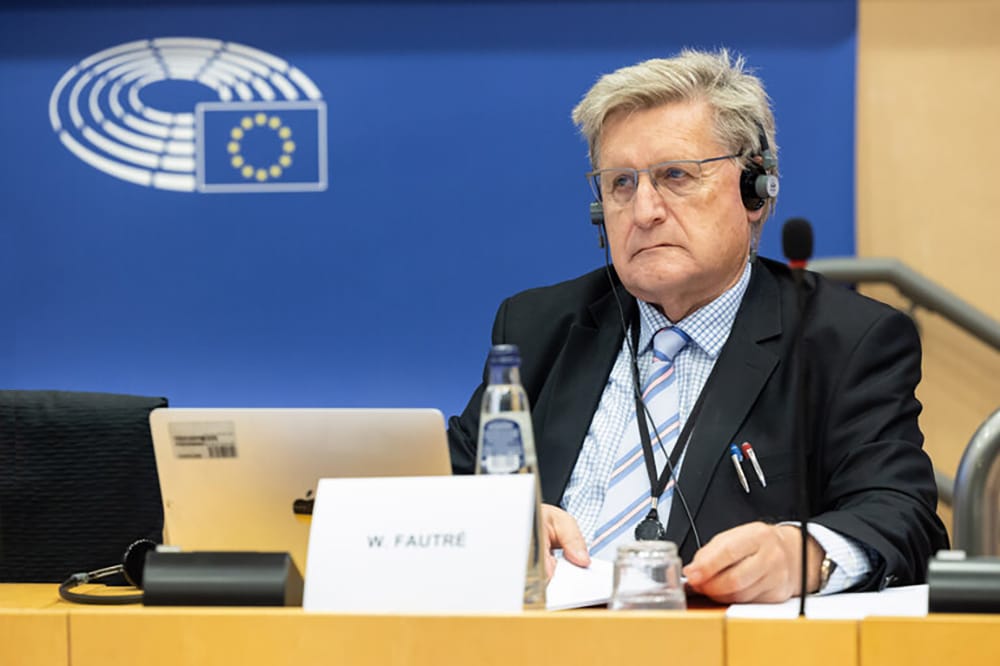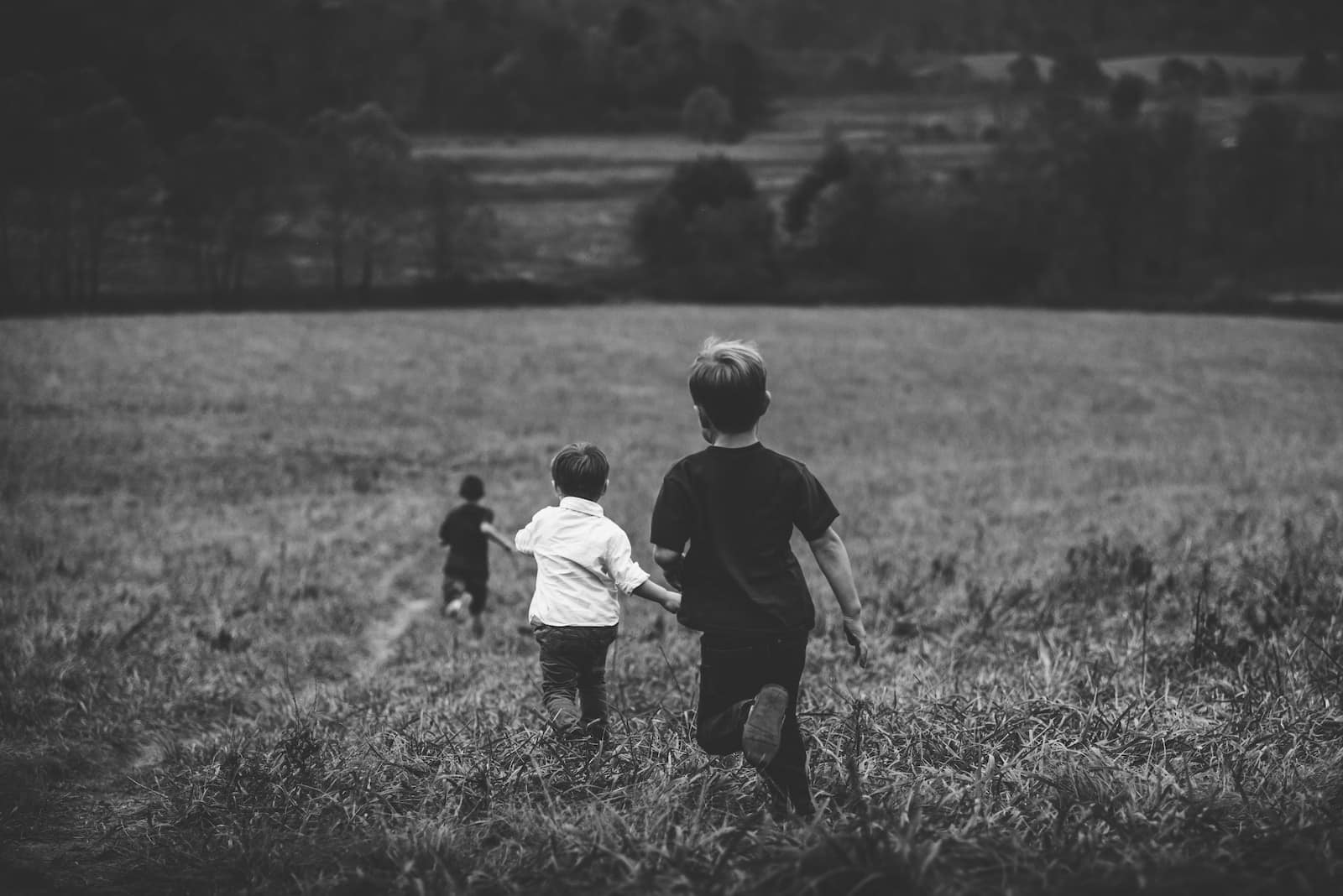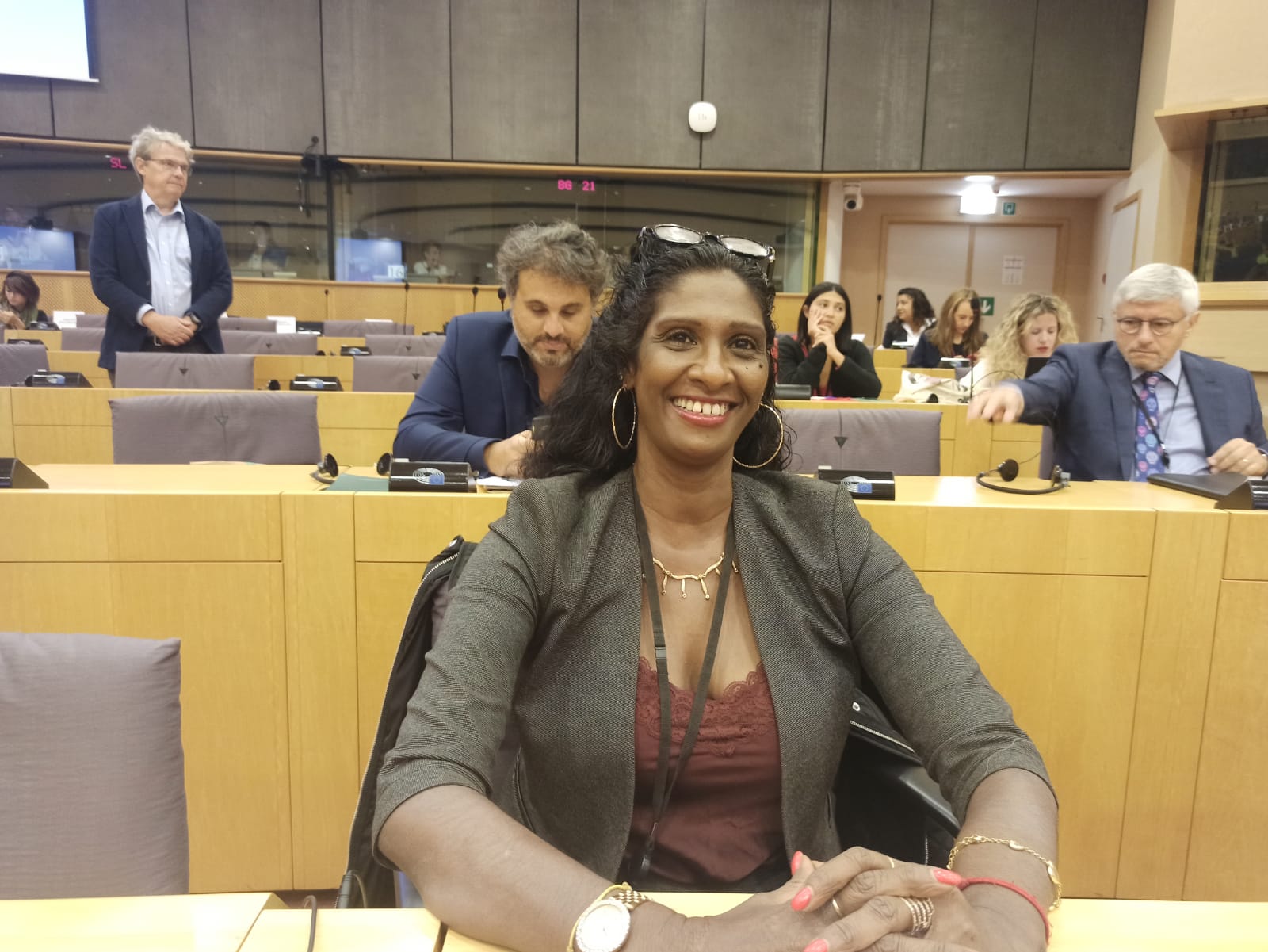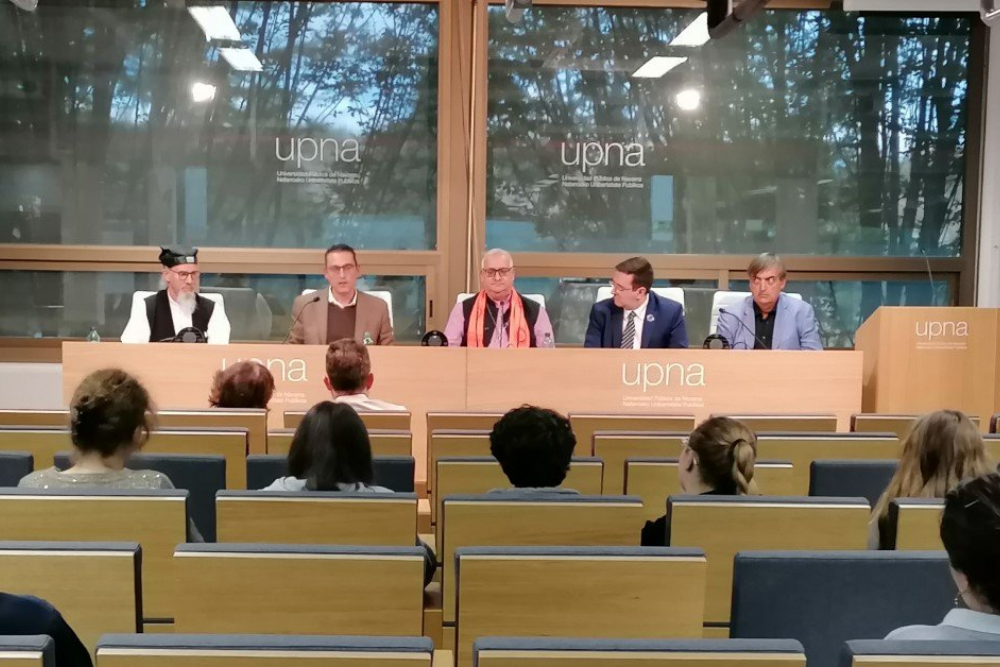Presentation at the hearing “Sexual violence and rape as abuses of power” held by the FEMM Committee of the European Parliament on 13 October by Willy Fautré, Human Rights Without Frontiers (HRWF).
The panellists were
Ms Katarzyna KOZLOWSKA, social activist, founder and President of the #SayStop Foundation
Dr. Branka ANTIC-STAUBER, collaboration with Organisations supporting victims of sexual violence in Bosnia
Mr Willy FAUTRÉ, Director and Co-Founder of Human Rights Without Frontiers
Opening: Vice-Chair MEP Radka Maxovà
Official pictures of the event here
HRWF (14.10.2022) – Abuse of power leading to sexual violence and rape has many facets and can take place in many contexts. Within the family, in the professional context, in a religious context, in the world of sports, in the economic and political world. Another area of abuse of power and extreme brutality, but in wartime now, concerns Russia’s invasion of Ukraine, where a foreign occupation army uses its power to commit massive exactions, including sexual violence and rape.
Sexual abuse, violence and rape in Ukraine in wartime
For more than 230 days, allegations of sexual violence by Russian troops in Ukraine have been dramatically mounting. At this stage, it is difficult to have even a rough estimate of the number of cases due to several factors, despite the intense work of the ICC and UN bodies.
It is already difficult for a victim in times of peace to reveal such a traumatizing experience. So, you can imagine the mindset of such victims in wartime. It means that testimonies collected by the UN, the ICC or the Red Cross will only represent a tiny portion of the magnitude of the tragedy. A huge number of cases will fall through the cracks as many women fled to EU countries, were displaced internally or were deported to Russia in unknown conditions. Moreover, the war is still raging in the occupied territories on Ukraine.
The fraught nature of sexual atrocities, which are historically underreported, means that in Ukraine it will be a long time before the full scale of the problem is clear. The small towns in the suburbs of Kyiv that are already known to the world for the widespread killing of civilians — Bucha, Borodyanka and Irpin — are haunted by tales of rape, too. Ukrainian officials and activists have also heard many accounts of sexual atrocities from regions that remain under occupation today.
In such conditions, collecting reliable data is extremely hard. In Ukrainian society, and especially in rural areas, sexual crimes are so stigmatized that victims fear being judged by their social environment. It is usually the victim’s relatives and friends who seek help on the victim’s behalf.
Position of the UN and other institutions on sexual violence and rape in Ukraine
Despite all the difficulties that have been mentioned, it is obvious that Russian soldiers are using rape as a tactic of war. This was clearly confirmed by Pramila Patten, UN Special Representative of the Secretary-General on Sexual Violence in Conflict, when she briefed the UN Security Council on 6 June after her visit to Ukraine in early May.
Since 24 February, Pramila Patten has issued three public statements “to ensure that this issue is not shrouded in silence or normalized by impunity”. She has also urged all parties to the conflict to ensure the protection of civilians from sexual violence.
“Too often have the needs of women and girls in conflict settings been side-lined and treated as an afterthought,” she said.
She also warned against waiting too long to act, saying
“An active battle-ground is never conducive to accurate ‘book-keeping’ […] if we wait for hard data and statistics, it will always be too late,”
and she called on the international community to mobilize immediately.
Information from the field and statistics provided by investigating institutions are indeed scarce and fragmented.
As of 3 June, the Office of the UN High Commissioner for Human Rights (OHCHR) had received reports of 124 alleged acts of conflict-related sexual abuse across Ukraine — mostly against women and girls, and I would dare say only 124.
In June, the UN Human Rights Monitoring Mission in Ukraine (HRMMU) released a report covering the period from 24 February until 15 May 2022 in which Matilda Bogner, the head of the UN body, noted that she had received numerous allegations and had been able to verify 23 cases of conflict-related sexual violence, including cases of rape, gang rape, torture, forced public stripping, and threats of sexual violence.
Natalia Karbowska, Co-Founder and Director of Strategic Development for the Ukrainian Women’s Fund, testified before the UN Security Council that
“Although the full scale of conflict-related sexual violence is not yet known, human rights activists and law enforcement agencies estimate that hundreds of cases have been committed not just against women and girls, but also men and boys and people of other gender identities.”
La Strada Ukraine, a well-known human rights organization, has been receiving calls about incidents of sexual crimes since early March. In the first two months of the war, they said they learned about 17 victims: one man and 16 women, three of whom were teenagers.
According to Iuliia Anosova, a lawyer with the group, they collected, from their hotline, stories about groups of soldiers committing rapes in front of onlookers.
The Organization for Security and Co-operation in Europe (OSCE) has also reported cases of conflict-related sexual violence, particularly rape and forced nudity, across the country, noting that these assaults often take place in conjunction with other crimes, including killings.
Pramila Patten, the UN Special Representative on Sexual Violence in Conflicts, concluded her report at the United Nations in June by saying:
“We do not need hard data for a scaled-up humanitarian response, nor for all parties to put in place preventive measures.”
Against that backdrop, she urged humanitarian actors to prioritize support for survivors of sexual and gender-based violence.
Ukraine cooperates with the UN
On 3 May, Ukraine’s Deputy Prime Minister Olha Stefanishyna signed the “Framework of Cooperation with the United Nations on the Prevention and Response to Conflict-Related Sexual Violence.”
Five critical areas are highlighted in the Framework and can be used as guidelines for the current and future management of sexual violence and rape:
- First, strengthening rule of law and accountability as a central aspect of deterrence and prevention of crimes of sexual violence.
- Second, strengthening the capacity of the security and defence sector to prevent sexual violence.
- Third, ensuring that survivors of sexual violence, as well as their children, have access to adequate services, including sexual and reproductive health, psychological, legal, and socioeconomic services and reintegration support.
- Fourth, ensuring that sexual violence is addressed in the framework of any ceasefire agreement, and ensuring that amnesties for sexual violence crimes are explicitly prohibited.
- And fifth, addressing conflict-related trafficking in persons for the purposes of sexual exploitation or prostitution.
The legal frameworks exist, the policies based on past experience in other conflict settings exist, the political will exists to seek, provide and analyze evidence, and the prosecution mechanisms exist. Impunity cannot and should not prevail even if it takes years or decades to identify, hunt and arrest the perpetrators as it was the case with the Nazi criminals of WWII.
(First published at HRWF.EU)














